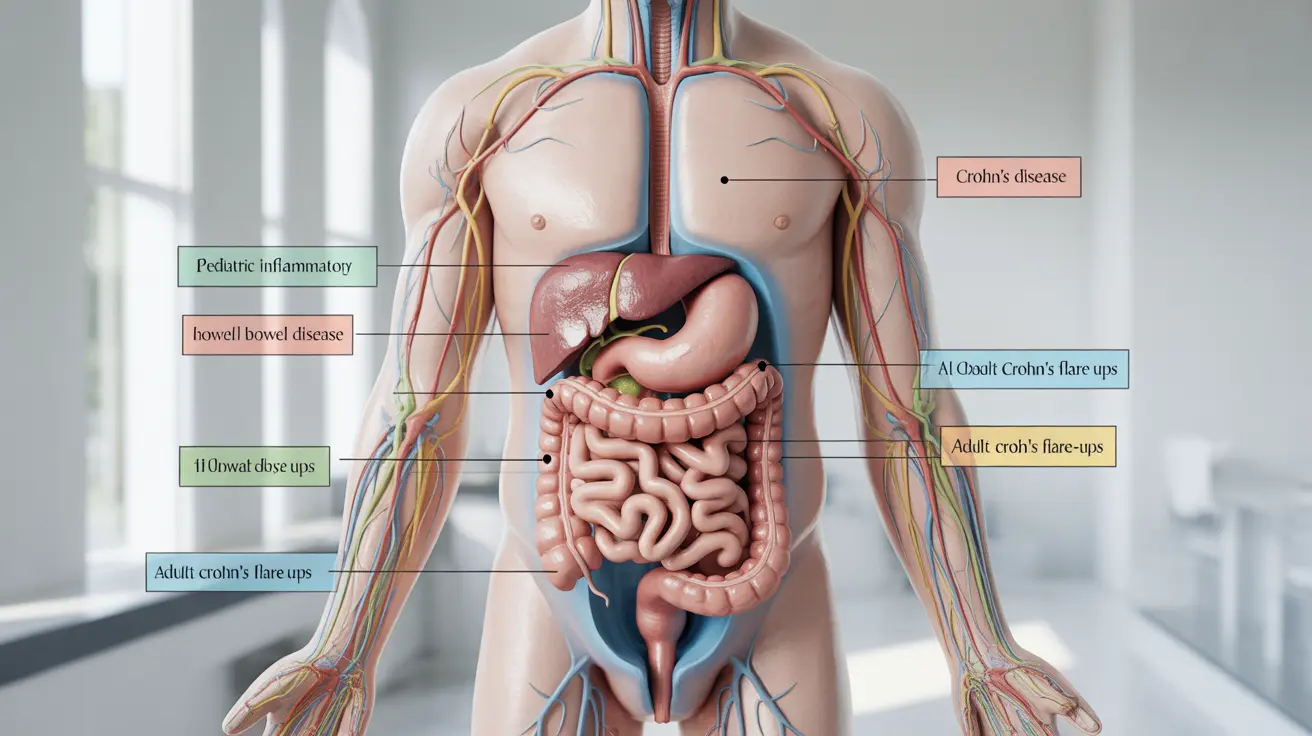Crohn's disease, a chronic inflammatory bowel condition, can develop at any age, but understanding when symptoms typically begin is crucial for early diagnosis and effective treatment. Whether you're a parent concerned about your child's digestive health or an adult experiencing unexplained symptoms, knowing the age-related patterns of Crohn's disease can help guide your healthcare decisions.
This comprehensive guide explores how Crohn's disease manifests across different age groups, from childhood to late adulthood, and what you should know about its onset, symptoms, and diagnosis timing.
Common Age Ranges for Crohn's Disease Onset
While Crohn's disease can develop at any age, there are two peak periods when diagnosis most commonly occurs. The first peak typically happens between ages 15 and 35, while a second, smaller peak occurs between ages 50 and 70. Understanding these patterns helps healthcare providers maintain appropriate vigilance during these critical periods.
Age-Specific Symptoms and Presentations
Children and Adolescents
Young patients often experience unique manifestations of Crohn's disease that can affect their growth and development. Common symptoms include:
- Delayed growth or puberty
- Unexplained weight loss
- Persistent diarrhea
- Abdominal pain
- Fatigue
- Poor appetite
Young Adults
The disease often presents differently in young adults, with symptoms that can include:
- Severe abdominal cramping
- Urgent bowel movements
- Persistent fatigue
- Joint pain
- Skin problems
- Weight loss
Older Adults
In later-onset Crohn's disease, symptoms may be more subtle initially:
- Mild abdominal discomfort
- Changes in bowel habits
- Unexplained weight loss
- Anemia
- General malaise
Early Detection in Children
Recognizing Crohn's disease in children under 10 requires special attention to specific warning signs. Parents should watch for:
- Unexplained fever
- Reduced physical activity
- Poor growth patterns
- Unexpected weight loss
- Recurring abdominal pain
- Changes in bowel habits
Diagnostic Challenges and Delays
Several factors can contribute to delays in diagnosing Crohn's disease, including:
- Symptoms that mimic other conditions
- Gradual onset of symptoms
- Varying presentation across age groups
- Limited access to specialized care
- Reluctance to discuss symptoms
Treatment Considerations by Age Group
Age at onset can significantly influence treatment approaches. Healthcare providers consider various factors when developing treatment plans:
Pediatric Patients
Treatment focuses on supporting normal growth and development while managing symptoms. Nutritional therapy often plays a central role.
Young Adults
Treatment strategies typically emphasize maintaining quality of life and preventing complications while considering lifestyle factors and fertility concerns.
Older Adults
Treatment plans must account for potential comorbidities and medication interactions, often requiring a more conservative approach.
Frequently Asked Questions
At what age do most people first notice Crohn's disease symptoms, and is it possible for symptoms to start later in life?
Most people first notice Crohn's disease symptoms between ages 15 and 35, though symptoms can develop at any age. A second peak of onset occurs between ages 50 and 70, demonstrating that later-life onset is entirely possible.
How do Crohn's disease symptoms differ between children, young adults, and older adults?
Children often experience growth delays and developmental issues alongside digestive symptoms. Young adults typically present with more classic symptoms like severe abdominal pain and urgent bowel movements. Older adults may have more subtle initial symptoms and are more likely to experience complications.
Can a child under 10 develop Crohn's disease, and what are the signs parents should watch for?
Yes, children under 10 can develop Crohn's disease. Parents should watch for unexplained fever, reduced activity, poor growth, unexpected weight loss, recurring abdominal pain, and changes in bowel habits.
Why is there sometimes a delay between the start of Crohn's disease symptoms and getting a diagnosis?
Diagnosis delays often occur due to symptoms mimicking other conditions, gradual symptom onset, varying presentation across age groups, limited access to specialized care, and patients' reluctance to discuss symptoms.
How does the age at which Crohn's disease starts affect treatment and management options?
Age of onset significantly influences treatment approaches. Pediatric patients require focus on growth and development, young adults need consideration of lifestyle and fertility factors, and older adults often need modified treatment plans due to other health conditions and medication interactions.




